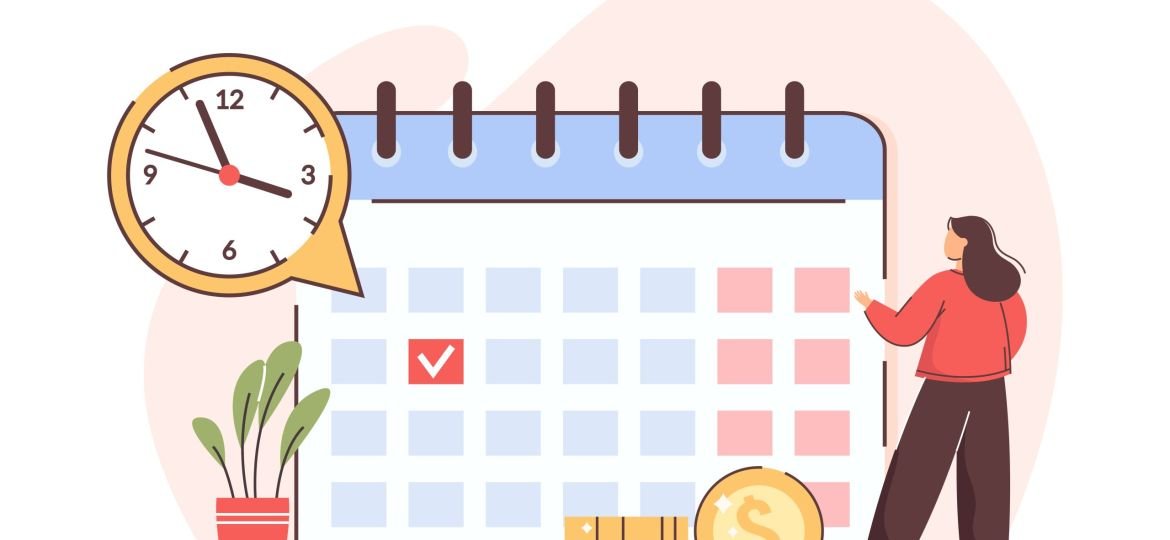
In today’s fast-paced world, managing your personal finances can be a constant challenge. With the ever-increasing cost of living, it’s essential to find ways to reduce your monthly expenses and stretch your hard-earned dollars further. Whether you’re trying to save for a specific goal, pay off debt, or simply improve your overall financial well-being, learning how to cut back on your monthly spending can make a significant difference.
In this comprehensive blog post, we’ll explore a variety of practical strategies and tips that can help you identify areas where you can cut costs, optimize your spending habits, and take control of your financial future. From reviewing your essential expenses to finding creative ways to save on everyday purchases, this article will provide you with the tools and insights you need to start reducing your monthly expenses and achieving your financial goals.
Assess Your Current Spending Habits
The first step in reducing your monthly expenses is to gain a clear understanding of where your money is going. Start by reviewing your recent bank statements, credit card bills, and any other financial records to identify your regular expenses. Categorize your spending into different areas, such as:
- Housing (rent/mortgage, utilities, insurance)
- Transportation (car payments, fuel, public transportation)
- Food (groceries, dining out, subscription services)
- Debt Payments (credit cards, loans, student debt)
- Entertainment (streaming services, subscriptions, hobbies)
- Miscellaneous (personal care, pet expenses, memberships)
By understanding where your money is going, you can start to pinpoint areas where you may be able to cut back or find ways to optimize your spending.
Reduce Housing Costs
Housing is often the largest expense in a household budget, so it’s an excellent place to start when looking to reduce your monthly costs. Consider the following strategies:
Negotiate Your Rent
If you’re a tenant, reach out to your landlord and politely negotiate for a lower rent. Landlords may be willing to offer a discount, especially if you’ve been a reliable tenant or if the rental market is competitive in your area.
Explore Downsizing
If your current living situation is larger than your needs, consider downsizing to a smaller apartment or house. This can result in significant savings on rent, utilities, and maintenance costs.
Refinance Your Mortgage
If you’re a homeowner, explore the possibility of refinancing your mortgage. This can potentially lower your monthly payments and save you money over the life of the loan.
Reduce Utility Costs
Look for ways to reduce your utility bills, such as adjusting your thermostat, using energy-efficient appliances, and optimizing your water usage.
Optimize Transportation Expenses
Transportation is another major expense category that can be targeted for savings. Here are some strategies to consider:
Use Public Transportation
If available in your area, take advantage of public transportation options such as buses, trains, or subways. This can be a more cost-effective alternative to driving and owning a vehicle.
Consider Carpooling or Ridesharing
Sharing rides with coworkers, friends, or family members can significantly reduce your fuel and maintenance costs.
Explore Alternative Modes of Transportation
Bicycling, walking, or using e-scooters can be excellent options for shorter trips, saving you money on fuel and parking expenses.
Negotiate Your Car Insurance Rates
Shop around for car insurance providers and negotiate for the best rates. You may also be able to take advantage of discounts by bundling your insurance policies or maintaining a clean driving record.
Reduce Food Costs
Food is a necessary expense, but there are ways to trim your grocery and dining-out budgets:
Meal Plan and Batch Cook
Plan your meals in advance and prepare larger batches of food that can be portioned out and enjoyed throughout the week. This can help you avoid impulse purchases and reduce food waste.
Take Advantage of Coupons and Sales
Look for coupons, discounts, and sales at your local grocery stores, and plan your shopping trips accordingly.
Limit Dining Out
While it’s tempting to eat out frequently, cooking at home can be significantly more cost-effective. Try to limit dining out to special occasions or when it’s truly necessary.
Share Your Expertise, Build Your Business. Tired of limitations?
Create & sell online courses with Teachable. Keep 100% control. Start your free trial!
Bring Your Lunch to Work
Packing your own lunch can save you a substantial amount of money compared to buying food during the workday.
Manage Debt Effectively
Debt can be a significant drag on your monthly finances, so it’s important to address it proactively:
Prioritize Debt Payments
Make a list of your outstanding debts and their interest rates. Focus on paying off high-interest debt first, as this can save you the most money in the long run.
Negotiate with Creditors
If you’re struggling to make minimum payments, reach out to your creditors and see if they’re willing to negotiate lower interest rates or more manageable payment plans.
Consolidate or Refinance Debt
Consider consolidating multiple debts into a single, lower-interest loan or refinancing existing loans to reduce your monthly payments.
Avoid Taking on New Debt
Once you’ve made progress in paying down your debt, be mindful of avoiding new debt accumulation, as this can quickly undo your hard work.
Cut Back on Discretionary Expenses
Discretionary expenses, such as entertainment, subscriptions, and memberships, are areas where you can often find significant savings:
Review and Cancel Unused Subscriptions
Take a close look at your recurring subscriptions (e.g., streaming services, gym memberships, subscription boxes) and cancel any that you’re not actively using.
Limit Impulse Purchases
Before making a purchase, ask yourself if it’s a genuine need or simply a want. Implement a waiting period before finalizing any non-essential purchases to curb impulse spending.
Seek Free or Low-Cost Alternatives
Look for free or low-cost alternatives to your usual entertainment and leisure activities, such as visiting local parks, borrowing books from the library, or finding free online resources.
Negotiate Memberships and Subscriptions
If there are certain subscriptions or memberships you’d like to keep, try negotiating with the provider for a lower rate or better terms.
Automate Your Savings
Automating your savings can be an effective way to ensure that you’re consistently setting aside money each month:
Set Up Automatic Transfers
Arrange for a portion of your paycheck to be automatically transferred to a dedicated savings account before you have a chance to spend it.
Utilize Employer-Sponsored Retirement Plans
If your employer offers a 401(k) or other retirement savings plan, consider contributing to it through automatic payroll deductions.
Enroll in Automatic Bill Pay
Set up automatic payments for your recurring bills, such as rent, utilities, and insurance premiums, to avoid late fees and ensure timely payments.
Seek Additional Income Streams
While reducing expenses is crucial, you can also explore ways to supplement your primary income to further improve your financial situation:
Consider a Side Gig or Freelance Work
Explore opportunities for part-time work, freelance projects, or side hustles that can provide an additional source of income.
Rent Out a Room or Property
If you have extra space, consider renting out a room or your home through platforms like Airbnb or VRBO.
Sell Unwanted Items
Declutter your home and sell any items you no longer need or use through online marketplaces or local classified ads.
Stay Motivated and Accountable
Reducing your monthly expenses can be a challenging and ongoing process, so it’s important to stay motivated and accountable:
Set Clear Financial Goals
Establish specific, measurable, and time-bound financial goals, such as paying off a certain amount of debt or saving a specific sum of money.
Track Your Progress
Regularly review your spending and savings to monitor your progress and identify areas where you can continue to optimize.
Celebrate Small Wins
Acknowledge and celebrate your successes, no matter how small, to stay motivated and encouraged along the way.
Conclusion
Reducing your monthly expenses is a crucial step in achieving financial stability and reaching your long-term goals. By implementing the strategies outlined in this blog post, you can take control of your finances, save money, and ultimately improve your overall financial well-being.
Remember, the key to successful expense reduction is to be proactive, persistent, and adaptable. Regularly review your spending habits, explore new cost-saving opportunities, and be willing to make adjustments as your financial situation and priorities evolve.
With dedication and a commitment to smart financial practices, you can successfully reduce your monthly expenses and pave the way for a more secure and prosperous future. Start today and take the first step towards a more financially-empowered you.

















